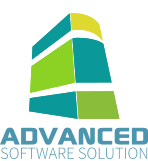Development Policies
Version: 1.0 | Issue Date: April 29, 2025
1. Purpose
These policies establish guidelines for the development, maintenance, and deployment of software solutions provided by Advanced Software Systems, ensuring consistency, quality, security, and alignment with client and regulatory expectations.
2. Scope
These policies apply to all software development activities performed for the Advanced Software Solution platform, including internal modules, client-specific customizations, and partner integrations.
3. Core Principles
- Security First: All code must follow secure coding practices.
- Maintainability: Code must be modular, well-documented, and version-controlled.
- Performance: Systems must be optimized to run efficiently under expected workloads.
- Scalability: Design must accommodate user growth without performance degradation.
- Compliance: Development must comply with relevant regulations (e.g., HIPAA, SOC 2, local tax laws).
4. Code Management
- All source code must be managed in a version-controlled repository (e.g., Git).
- Development must follow a structured branching model (e.g., main, develop, feature, hotfix).
- Commit messages must be clear, relevant, and linked to tasks or tickets when applicable.
5. Testing Requirements
- All features must include unit tests where applicable.
- QA testing is mandatory before any production release.
- Bugs marked as "critical" or affecting financial modules must be addressed within 24 hours.
6. Deployment Policies
- Only authorized personnel may deploy to production environments.
- Deployments must follow a predefined schedule unless classified as an emergency patch.
- Rollback procedures must be defined and tested quarterly.
7. Custom Development Requests
- Customizations requested by clients must be approved by the Product Manager.
- Each request will be evaluated individually for impact, feasibility, and billing implications.
- Development time for multiple requests will be accumulative and handled separately, as per our Terms and Conditions.
8. Change Management
- All changes must be logged and documented.
- Major updates will include version notes and impact assessment.
- Clients will be notified of updates that impact usability or data handling.
9. Emergency Handling
- Issues affecting payroll, invoicing, or compliance are treated as emergencies.
- Emergency requests will be prioritized and resolved within agreed SLAs.
10. Communication
All development-related communication must go through official channels:
- customerservice@aswspr.com
- accountsreceivable@aswspr.com (for billing-related development)
11. Review & Revisions
This policy will be reviewed semi-annually or after major platform updates.
